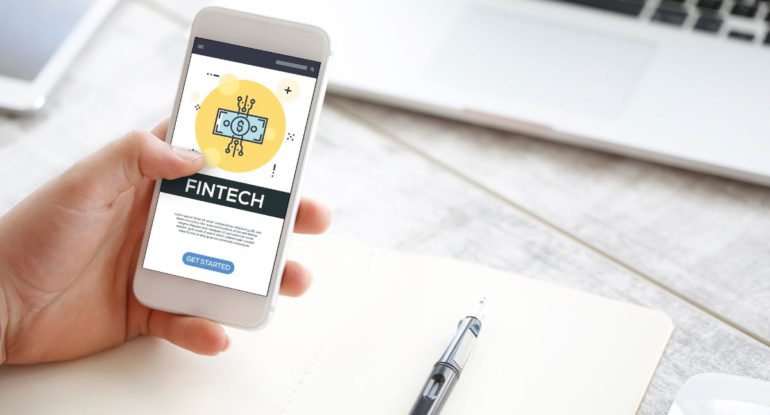The Synergy Of Blockchain And AI In Crypto Tech

Blockchain and artificial intelligence (AI) are two revolutionary technologies that have been making waves in various industries. While they may seem distinct at first, there is an increasing recognition of the synergy between these two powerful innovations, particularly in the world of cryptocurrency and blockchain technology. In this article, we will delve into the convergence of blockchain and AI, exploring how they complement each other and the potential they hold for the future of crypto tech.
The Basics of Blockchain and AI:

Before we explore their synergy, let’s briefly recap the fundamentals of blockchain and AI.
Blockchain: Blockchain is a decentralized and immutable ledger technology that underpins cryptocurrencies like Bitcoin and Ethereum. It offers transparency, security, and trust by recording transactions in a way that makes it nearly impossible to alter past data. This technology has transformed the financial sector, introducing new paradigms of digital assets and decentralized finance (DeFi).
Artificial Intelligence: AI, on the other hand, encompasses a wide range of technologies that enable machines to mimic human cognitive functions. Machine learning and deep learning, subfields of AI, have been instrumental in automating tasks, making predictions, and generating insights from vast amounts of data.
Also, read – Are Blockchain and AI an Ideal Match called Blockchain AI?
The Synergy of blockchain and AI for the crypto tech:

- Enhanced Security: One of the primary advantages of blockchain is its security, and AI can further strengthen this aspect. AI-powered security solutions can detect unusual patterns and potential threats in real-time, thus providing an additional layer of protection for blockchain networks and crypto transactions.
- Smart Contracts: Smart contracts are self-executing contracts with the terms directly written into code. Combining AI with blockchain can lead to more intelligent and adaptable smart contracts. These contracts can automatically adjust terms and conditions based on real-world events, thanks to AI’s ability to process and analyze data.
- Data Analysis and Predictive Insights: AI excels at analyzing large datasets. In the world of cryptocurrencies, this capability can be harnessed to gain insights into market trends, predict price movements, and identify trading opportunities. This synergy can be invaluable for crypto traders and investors.
- Fraud Detection: The crypto space is not immune to fraud and scams. AI algorithms can be employed to detect fraudulent activities in real-time, preventing theft and increasing the overall security of crypto transactions.
- Decentralized Autonomous Organizations (DAOs): AI can facilitate the governance of decentralized autonomous organizations by optimizing decision-making processes. By analyzing data and proposing efficient strategies, AI can contribute to the effective functioning of DAOs in the blockchain space.
- Personalized Financial Services: AI can create personalized financial services for cryptocurrency users. It can analyze an individual’s financial behavior and preferences, offering tailored investment advice, asset allocation strategies, and risk management solutions.
There is a notion in our space of “money crypto” vs “tech crypto” (where folks downplay the former and laud the latter) but I think that misses something important.
Money is memetic. Gold and diamonds are memes. Many of the things we ascribe value to are simply the case because…
— Keone (evm/acc) (@keoneHD) November 7, 2023
- Scalability Solutions: Blockchain networks, especially those like Bitcoin and Ethereum, face scalability challenges. AI can help optimize blockchain transactions and reduce congestion by predicting network loads and adjusting block sizes dynamically. This can enhance the overall performance and throughput of blockchain networks, making them more suitable for real-world applications beyond just cryptocurrencies.
- Natural Language Processing (NLP) for Data Analysis: Natural Language Processing, a subset of AI, can be used to extract and analyze information from crypto-related news articles, social media, and forums. This data can help investors and traders make informed decisions by understanding sentiment and news impact on cryptocurrency markets.
- Tokenization of Real-World Assets: The combination of blockchain and AI can revolutionize the tokenization of real-world assets. AI algorithms can assess the value and potential risks associated with tokenized assets, making it easier to create tokens for physical assets like real estate, art, or commodities. This opens up new opportunities for fractional ownership and global asset trading.
- Cross-Chain Interoperability: Interoperability between different blockchains has been a challenge. AI can be used to develop cross-chain solutions that enable seamless communication and data sharing between various blockchain networks. This enhances the overall efficiency and utility of blockchain technology by creating a more interconnected and accessible ecosystem for crypto users.
even nasdaq looking like a HTF bull flag breakout imminent managing to get firmly back into the breakdown range.
the christmas rally this year is gonna be a sight to behold imo and naturally bullish tech means bullish crypto imo. pic.twitter.com/yyIyaC8tLR
— Bluntz (@Bluntz_Capital) November 3, 2023
The challenges and limitations of existing crypto tech and how the combination of blockchain and AI can help address them:

1. Scalability:
- Challenge: Many blockchain networks, including Bitcoin and Ethereum, face scalability issues, leading to slow transaction processing and high fees during peak usage.
- Solution: AI can predict network loads and optimize transaction processing. Blockchain systems can dynamically adjust block sizes and prioritize transactions based on AI insights, improving scalability and reducing congestion.
2. Security and Fraud:
- Challenge: Crypto transactions are susceptible to fraud, hacks, and phishing attacks. Security breaches can lead to significant financial losses.
- Solution: AI-powered security systems can detect and prevent fraudulent activities in real-time. Machine learning algorithms analyze transaction patterns and flag suspicious behavior, enhancing the overall security of crypto transactions.
3. Smart Contracts:
- Challenge: Smart contracts, while revolutionary, can be inflexible and unable to adapt to real-world events and changing conditions.
- Solution: AI can enhance smart contracts by introducing adaptability. These contracts can automatically adjust terms and conditions based on real-time data and external events. For instance, an insurance smart contract could automatically trigger a payout in the event of a natural disaster based on AI weather data analysis.
4. Data Analysis and Predictive Insights:
- Challenge: Crypto markets are highly volatile and difficult to predict. Traders and investors often struggle to make informed decisions.
- Solution: AI’s data analysis capabilities can be harnessed to gain insights into market trends, predict price movements, and identify trading opportunities. Machine learning models can process vast datasets to provide traders with data-driven predictions and strategies.
5. Regulatory Compliance:
- Challenge: The evolving regulatory landscape for cryptocurrencies can be complex and challenging to navigate. Ensuring compliance is a concern for crypto businesses and users.
- Solution: AI can assist in monitoring and ensuring compliance with evolving regulations. AI-powered compliance tools can track and report on transactions, helping businesses and users stay on the right side of the law.
6. Personalized Financial Services:
- Challenge: Cryptocurrency users often lack access to tailored financial services and investment advice.
- Solution: AI can create personalized financial services for users by analyzing their financial behavior and preferences. This includes offering customized investment advice, asset allocation strategies, and risk management solutions.
7. Tokenization of Real-World Assets:
- Challenge: Tokenizing real-world assets, such as real estate or art, can be a complex and costly process.
- Solution: AI can assess the value and potential risks associated with tokenized assets, making it easier to create tokens for physical assets. This opens up new opportunities for fractional ownership and global asset trading, making real-world assets more accessible to a broader range of investors.
8. Cross-Chain Interoperability:
- Challenge: Interoperability between different blockchains has been a challenge, limiting the seamless exchange of assets and data.
- Solution: AI-driven cross-chain solutions can facilitate communication and data sharing between various blockchain networks. This creates a more interconnected and accessible blockchain ecosystem, improving overall efficiency and utility.
In summary, the challenges and limitations of existing crypto tech are numerous, but the integration of blockchain and AI offers innovative solutions. These technologies can enhance scalability, security, adaptability, and predictive capabilities in the crypto space, providing users and businesses with more reliable and efficient systems for managing digital assets and transactions.
Conclusion:
The synergy of blockchain and AI holds immense potential for the crypto tech industry. By combining the security and transparency of blockchain with the analytical and adaptive capabilities of AI, we can expect a future where cryptocurrencies and decentralized systems are more efficient, secure, and user-friendly. As these two technologies continue to evolve and intertwine, they are likely to reshape the landscape of crypto tech in exciting ways, offering new opportunities and solutions for users and businesses alike.
FAQs about crypto tech:
What is crypto technology? 🤔
Crypto technology refers to the underlying digital and cryptographic techniques used to secure and manage cryptocurrencies, ensuring their authenticity, integrity, and privacy. It includes blockchain technology, which is the foundation of many cryptocurrencies.
What is cryptocurrency technical? 📊
Cryptocurrency technical analysis involves studying the historical price movements, trading volume, and other market data of a cryptocurrency to make predictions about its future price movements. It’s a method often used by traders and investors.
Which cryptocurrency has the best tech? 🚀
The answer to this question can vary depending on one’s perspective and criteria for evaluating technology. Some cryptocurrencies known for their advanced technology and features include Bitcoin (for its robust and secure blockchain), Ethereum (for its smart contract capabilities), and newer projects like Cardano and Solana. It ultimately depends on your specific needs and goals.
What are the 4 types of cryptocurrency? 💰
There are thousands of cryptocurrencies, but they can be broadly categorized into four types:
- Cryptocurrency Coins: These are standalone digital currencies like Bitcoin and Litecoin.
- Tokens: These are built on existing blockchain platforms and serve various purposes, such as utility or governance tokens on DeFi platforms.
- Stablecoins: Cryptocurrencies designed to have a stable value, often pegged to traditional fiat currencies like the US Dollar or the Euro.
- Privacy Coins: These prioritize user privacy and anonymity, like Monero and Zcash.
How AI is used in blockchain? 🧠🔗
Artificial Intelligence (AI) and blockchain technology are often used together in various ways:
- Security: AI can enhance the security of blockchain networks by identifying and mitigating threats, such as detecting suspicious transactions or potential vulnerabilities.
- Smart Contracts: AI can analyze data and trigger smart contracts based on predefined conditions, automating complex processes.
- Data Analysis: AI can process and analyze large volumes of data on the blockchain, providing valuable insights for businesses and organizations.
- Identity Verification: AI can be used for identity verification, which is crucial for ensuring the legitimacy of participants in blockchain networks.
What is the future of AI and blockchain? 🔮🌐
The future of AI and blockchain is promising and intertwined. They are likely to continue evolving together, with AI enhancing blockchain security and functionality. Expect to see more AI-powered blockchain applications in various industries, from finance to healthcare and supply chain management.
How is blockchain integrated with AI projects? 🤝🚀
Blockchain is integrated with AI projects through the following methods:
- Data Security: Blockchain ensures data integrity and security, crucial for AI projects that rely on clean and trustworthy data.
- Smart Contracts: AI projects can use blockchain to execute smart contracts automatically when specific conditions are met.
- Decentralized AI Marketplaces: Blockchain can support decentralized AI marketplaces where AI models and data can be securely traded and used.
Why is AI and blockchain a good combination? 🤖🔗
AI and blockchain complement each other because:
- Security: Blockchain enhances the security of AI systems, making it more difficult for unauthorized access and data manipulation.
- Data Trustworthiness: Blockchain ensures the integrity and transparency of data, which is crucial for AI’s data-driven decision-making.
- Automation: AI can automate various processes on the blockchain, such as contract execution and data analysis.
- Decentralization: Combining AI with blockchain can enable decentralized AI applications that aren’t controlled by a single entity, promoting trust and fairness.




























































